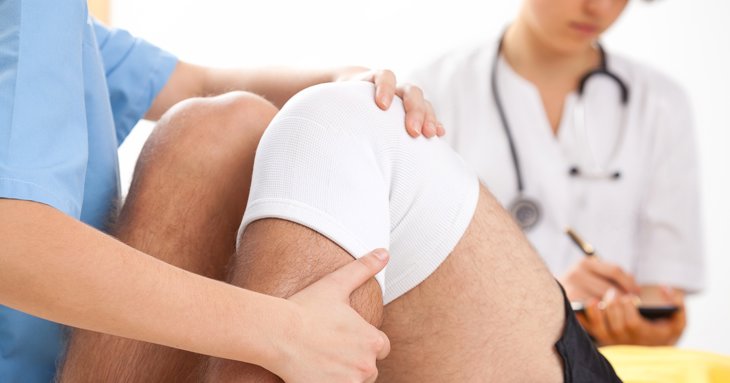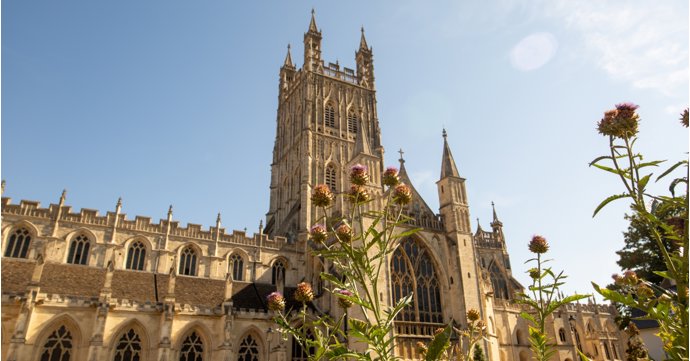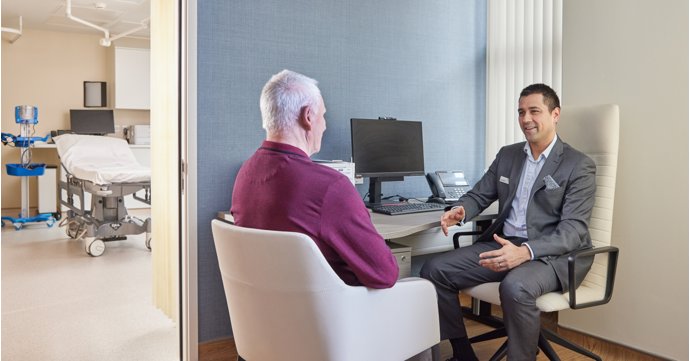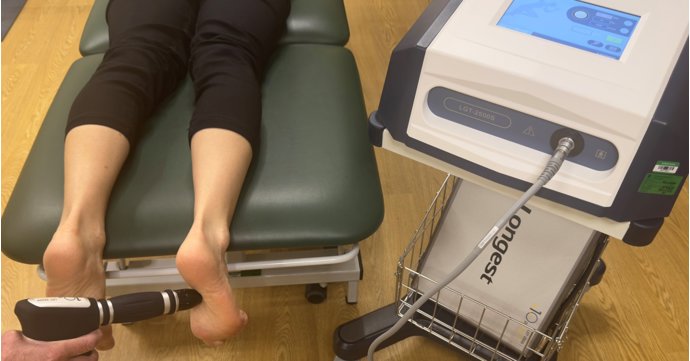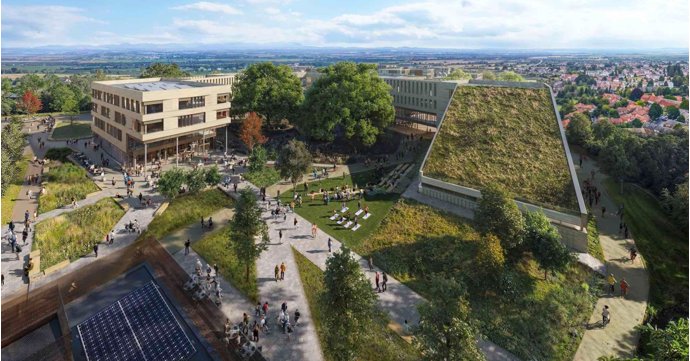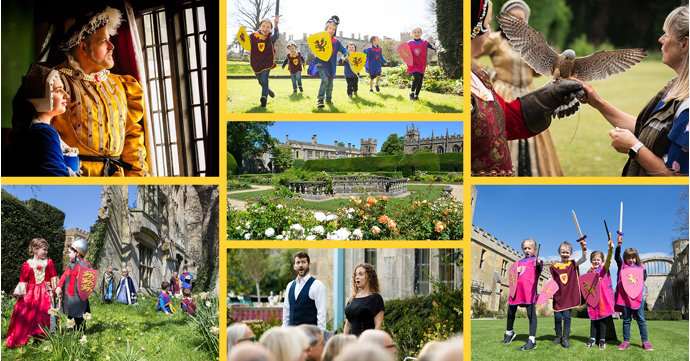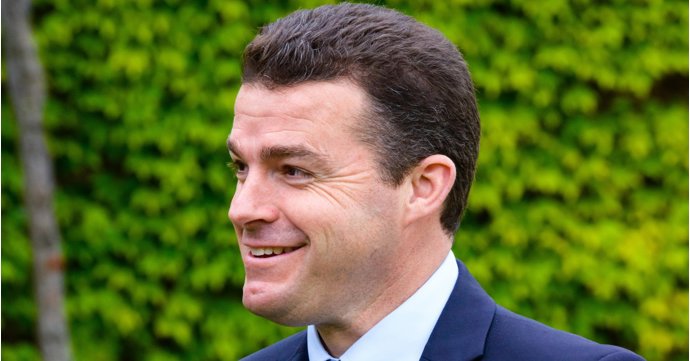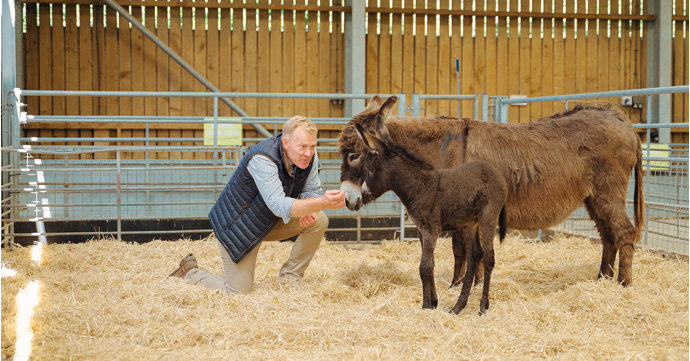Orthopaedic knee consultant, Mr Harminder Gosal, has helped hundreds of patients at Nuffield Health Cheltenham Hospital over the last 20 years.
Giving patients with knee problems a fresh lease of life, from professional footballers to those whose lives have been affected by accidental injuries, SoGlos discovers what kind of support Nuffield Health can provide for Gloucestershire residents in need of relief.
Why should readers consider coming to Nuffield Health Cheltenham — and what benefits does it have compared to being an NHS patient?
The main advantage of coming to the Nuffield, over the NHS, is that you will get a prompt appointment usually within a week to 10 days and the consultation will be tailored to you, so all X-rays and scans will be organised straight away.
They can often be carried out on the same day of the consultation, based on availability, with an MRI scan within one to two days.
The one-stop knee clinic at Linton House can offer a two-hour slot where everything is carried out on the same day; consultation, x-rays, MRIs and a follow up consultation. Within these two hours, a diagnosis and treatment plan is created for the patient.
Coming to the Nuffield is a fast way to decide on your options going forward to treat knee pain.
What happens during a consultation?
I make sure that when you come in, you are comfortable in the room. Normally a chaperone is available if you would like someone to assist you.
We will have a discussion on the condition affecting your knee. This is what we call taking a full history, where I will ask patients to tell me how long problems have been going on for.
Then I may intermittently ask questions specific to making a diagnosis of what I think is affecting the knee. Once we have taken a full history, I will carry out an examination of the knee.
This would mean exposure of the whole lower leg. I ask patients to stand to begin with, then walk and then lie on the couch. We provide gowns at all times for patients to wear if they feel more relaxed and comfortable in one.
When examined, I formulate an initial diagnostic plan. This is supported with x-rays or an MRI. X-rays are good for looking for bone abnormalities, wear and tear, or arthritis and MRIs are good at looking for sports injuries and cartilage tears.
If the X-ray is on the day, I will see you again after to give a report on what the outcome is and where to go from here.
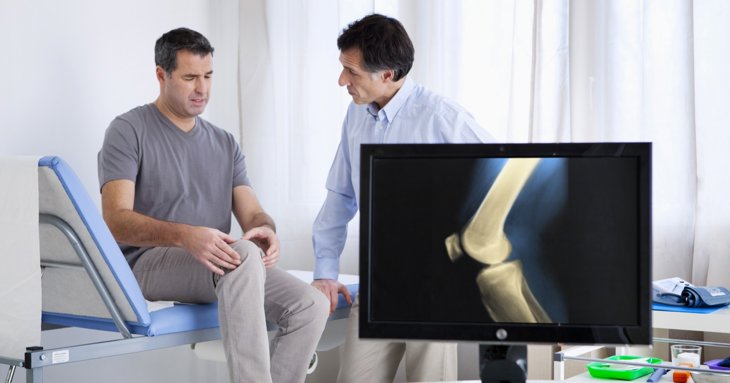
How do you know it’s the right time to consider a knee operation?
This can be difficult to address. Before a knee replacement surgery, I make sure you’ve taken the right measures to manage the condition through pain relief and physiotherapy exercise programmes.
If these don’t reduce the pain or the disability from the arthritic joint, then I would advise patients go down the route of a knee replacement.
Why should a patient put their trust in your hands?
I’ve been a consultant here in Cheltenham for more than 20 years and work with a very experienced knee team at the Nuffield Hospital.
I have treated many patients of all age ranges. The conditions I have treated range from sports injuries to traumatic injuries as well as arthritic conditions.
The sports injuries I have treated range from amateur athletes to professional athletes. I have operated on many footballers to try and get them back to full fitness.
Over the years I’ve carried out many knee arthroscopy procedures, as well as ligament reconstructions in the younger population.
In the older population I have carried out many knee replacements, from partial to a total knee replacement.
Every year I carry out 200 to 250 joint replacement procedures. Over this period of time I follow up with all of my patients and my results are followed up by the national joint registry.
The joint registry has been going for more than 20 years and all patients who have joint replacements are asked if we can submit their data for the joint registry to collect. Every year the national joint registry publishes a report on general joint replacement outcomes which is sent to the consultants who carry out the procedure.
This data shows a consultant level report, which includes the number of procedures I carry out, as well as the outcome measures. I can also access my data through their website and see other consultant’s data.
I have been fortunate enough to get good outcomes over the years and am happy to share my data with any of my patients. The idea of this is to reassure patients that if they come and see me, I will provide good care and the results of my treatments are also good.
How can prospective patients make a booking?
We have a website, gosalkneeclinic.co.uk, with all of my details on. I would normally appreciate a referral either from the GP or physiotherapist, but I am also happy to see patients without one.
On the website, there is a referral form to fill out, or you can send an email directly to my medical secretary Karen Longmate.
To book the initial consultation you can email Karen.longmate@nuffieldhealth.com or call on (01242) 246534.


